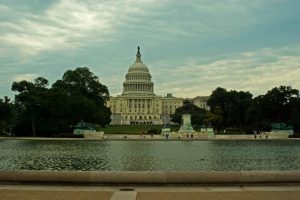Judge Calls Florida Medical Marijuana Smoking Ban Unconstitutional
A judge in Florida’s Leon County Circuit Court has struck down a ban on smoking medical marijuana in the state, calling it unconstitutional. People United for Medical Marijuana Inc. v. Florida Department of Health challenged a smoking restriction lawmakers added to regulations for medical marijuana. Plaintiffs cited medical cases in which smoking cannabis was beneficial to the patient, including a woman who smoked marijuana as part of her treatment for ALS. She testified her doctors never objected to her smoking and were impressed by the ways she showed improvement after smoking.
calling it unconstitutional. People United for Medical Marijuana Inc. v. Florida Department of Health challenged a smoking restriction lawmakers added to regulations for medical marijuana. Plaintiffs cited medical cases in which smoking cannabis was beneficial to the patient, including a woman who smoked marijuana as part of her treatment for ALS. She testified her doctors never objected to her smoking and were impressed by the ways she showed improvement after smoking.
In November 2016, voters passed Florida Medical Marijuana Legalization Initiative (or Amendment 2) with the required super-majority it needed to amend the state constitution. The ballot initiative called for the legalization of medical marijuana “for individuals with specific debilitating diseases or comparable debilitating conditions as determined by a licensed state physician.” Power to set regulations went to the Legislature, which compiled a list of eligible diagnoses the following year that would be qualified for medical marijuana recommendations. Lawmakers also added verbiage to SB-8A about how cannabis could be administered, which specifically banned smoking.
 Cannabis Law Group's Medical Marijuana Legal Blog
Cannabis Law Group's Medical Marijuana Legal Blog





 continue to disrupt that industry for the foreseeable future.
continue to disrupt that industry for the foreseeable future. catching up to what California and our trusted attorneys have known for a long time: That marijuana is a safe and effective treatment for many illnesses and ailments. So safe, in fact, that laws are expanding to open up marijuana for recreational consumption as well, with California implementing
catching up to what California and our trusted attorneys have known for a long time: That marijuana is a safe and effective treatment for many illnesses and ailments. So safe, in fact, that laws are expanding to open up marijuana for recreational consumption as well, with California implementing  bill that would prevent employers from discriminating against employees because they use cannabis for medical purposes was recently introduced by Assemblyman Rob Bonta (D-Oakland), according to
bill that would prevent employers from discriminating against employees because they use cannabis for medical purposes was recently introduced by Assemblyman Rob Bonta (D-Oakland), according to  harm, and … are continually threatened with additional harm” as a result of marijuana’s Schedule I classification under
harm, and … are continually threatened with additional harm” as a result of marijuana’s Schedule I classification under  blocks the Justice Department’s ability to spend money on prosecuting medical marijuana operations that are compliant with their state’s relevant laws.
blocks the Justice Department’s ability to spend money on prosecuting medical marijuana operations that are compliant with their state’s relevant laws. struggling with best practices and how to implement the laws quickly and correctly. It often falls to state departments, local legislatures, and other agencies to sort out licensing and sales practices.
struggling with best practices and how to implement the laws quickly and correctly. It often falls to state departments, local legislatures, and other agencies to sort out licensing and sales practices. The Supremacy Clause of the U.S. Constitution essentially states that if Congress creates a law under the enumerated or implied powers afforded to it by the Constitution, that law is supreme to any state or local law. Whether congress has the power to act on in certain area has been subject to much debate and judicial decisions, but for the purposes of this blog post, we understand that congress has the power to regulate the licensing of drugs sold in the U.S.
The Supremacy Clause of the U.S. Constitution essentially states that if Congress creates a law under the enumerated or implied powers afforded to it by the Constitution, that law is supreme to any state or local law. Whether congress has the power to act on in certain area has been subject to much debate and judicial decisions, but for the purposes of this blog post, we understand that congress has the power to regulate the licensing of drugs sold in the U.S.  There is a good chance they will still be able to get it from the same dispensaries they have been going to because of the fact that colocation will be legal in most places. This means that the same dispensaries that are already in existence will be able to also sell marijuana for recreational use.
There is a good chance they will still be able to get it from the same dispensaries they have been going to because of the fact that colocation will be legal in most places. This means that the same dispensaries that are already in existence will be able to also sell marijuana for recreational use.  The previous attempt at the CARERS Act, which stands for Compassionate Access, Research Expansion, and Respect State, called for moving marijuana from the highest schedule and moving it down to a Schedule Two controlled substance.
The previous attempt at the CARERS Act, which stands for Compassionate Access, Research Expansion, and Respect State, called for moving marijuana from the highest schedule and moving it down to a Schedule Two controlled substance.